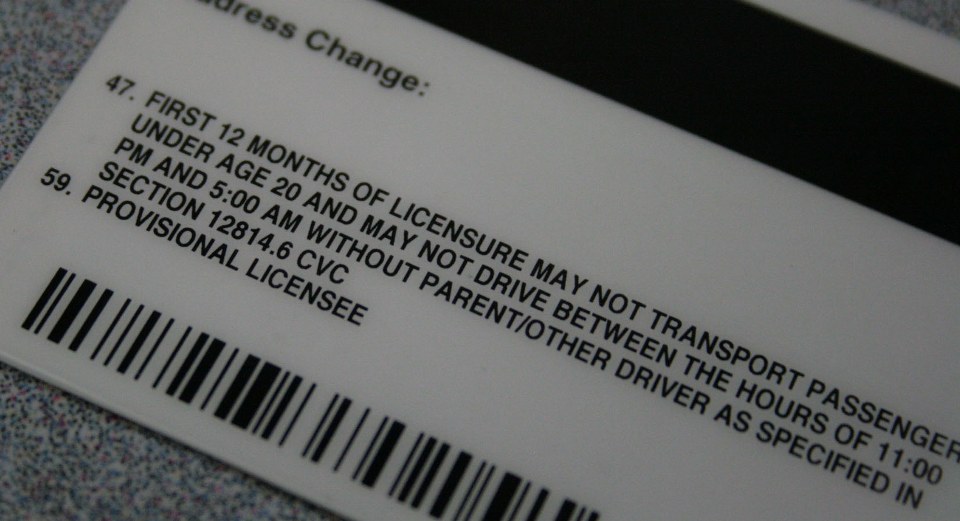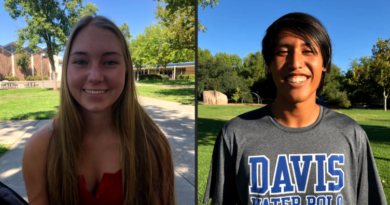Provisional drivers plague DHS
The Veteran’s Memorial parking lot is packed with DHS students’ cars minutes before lunch on a cloudy, rainy Wednesday afternoon. But within minutes of the bell ringing, students have piled into their cars and splashed out of the parking lot in throngs. Once without a space in sight, the student parking lot is half deserted.
The mass exodus of students is an everyday occurrence during the school week at DHS. Looking to capitalize on an open campus at lunch, licensed students ferry themselves and friends to popular restaurants around Davis.
But according to several DHS students, many of the drivers are carrying passengers when they only have a provisional license, which requires adult supervision to transport people under 20 years of age.
“It’s very common from what I have seen at the high school and around Davis,” junior Noah Henry said. “The underage driving and rides seem to happen more at lunch than any other time since people want to drive somewhere and eat food with their friends.”
Upon passing their driving test, drivers (under age 18) receive a provisional license from the California Department of Vehicles. The license restricts them from carrying passengers for one year without a licensed parent, legal guardian or instructor in the vehicle, or a permission note signed by a parent, guardian or employer.
This one-year policy was enacted for several reasons.

“It gives you a year of experience driving on different surfaces, driving at night, driving in the rain, and driving in the freeze,” DHS counselor Courtenay Tessler said.
Davis police officer Dan Lafond adds that the policy minimizes potential hazards.
“It’s a dangerous time. If you look at insurance companies, they charge incredible amounts that first year,” Lafond said. “(The law) is (there) to keep them from being distracted or trying to impress their peers.”
A DHS mother (who requested anonymity) shared Lafond’s concerns about passengers becoming distractions.
“Friends are a number one distraction, and I’m willing to bet you might be more inclined to drive fast or swerve around because it’s kind of fun to mess around with your friends in the car,” she said.
If a driver is caught violating the policy, the student and potentially every passenger in the car can be cited.
However, for many students, the rewards outweigh the risks.
Amir Alemi believes that DHS students bypass the law because there is “no quality food around Davis High.”
“If you want In-N-Out or Habit Burger, you can’t go on a bike. I tried to and I was 20 minutes late,” Alemi said.
Other students just doubt they will be caught.
Brandon Fore said students are only apprehended after being pulled over for speeding or reckless driving.
“When they do get caught, it’s for something else,” Fore said.
In addition, several DHS students say most people follow all safety regulations when breaking the policy.
“Usually people will wear seatbelts unless somebody is stuck in the middle seat. It’s not hard to do and it’s an easy, safe job that most people remember to do,” Henry said.
Fore added, “I’m more cautious when I have people in the car.”
But Tessler and Lafond believe it’s just safer for students to refrain from breaking the policy.
“I think when you first get your driver’s license, you’re a very safe driver, but then you start crossing boundaries. One day, it catches up to you,” Tessler said. “I’ve seen kids in high school become brain damaged by accidents in cars.”
“The law is there for a reason, and the reason is safety. We’ve all seen students rushing out of the parking lot at lunch and because they’re rushing, they are distracted. Accidents in the first year happen because they are distracted,” Lafond said. “Once it happens, you can’t take anything back.”
Tessler left DHS students with a warning.
“The car is the most dangerous weapon you will ever be allowed to have.”


